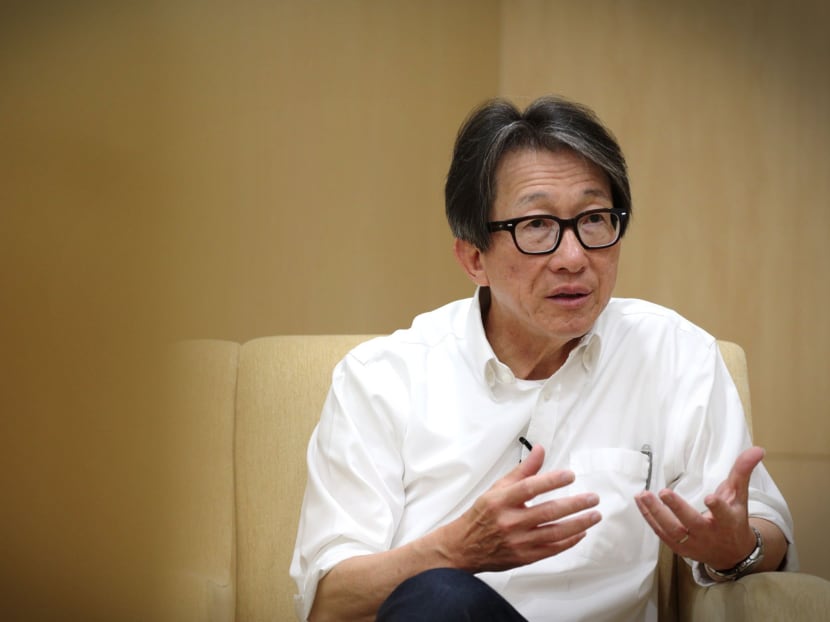Economy at critical juncture: Swee Say
SINGAPORE — The issues of foreign manpower and productivity may hog the headlines, but the Republic faces more critical challenges as growth moderates and it approaches a fork in the road.
SINGAPORE — The issues of foreign manpower and productivity may hog the headlines, but the Republic faces more critical challenges as growth moderates and it approaches a fork in the road.
One turn leads it towards being an economy that depends less on manpower, creates better jobs and ensures a healthy pipeline of Singaporeans able to form the core in all the major sectors.
The other is a path taken by other developed economies, which has led to a shortage of jobs, wage stagnation and youth unemployment.
In an interview with TODAY earlier this week, Manpower Minister Lim Swee Say said he is confident that Singapore will take the former route, as the Government, unions and employers are sparing no efforts towards achieving this end.
But, he cautioned, nothing is pre-ordained, and the stakes are high. “If we do it wrong, all the problems faced by the developed economies today will come to us,” Mr Lim said.
Singapore had arrived at a similar economic crossroads in the past, he said, and made the right choice by pursuing a high growth model dependent on a large supply of foreign labour.
This, said Mr Lim, “served the interest of our local workers very well ... that was the period in which the world was having a shortage of jobs. But in Singapore, because of our high growth policy, we had a shortage of workers”.
He added: “(There was also) wage stagnation around the world, but we saw wages grow in real terms here. The world has increasingly been bogged down not just by unemployment, but more severely, youth unemployment — you see that all over the world. Yet in Singapore, we managed to escape all that … I would say it’s mainly due to our healthy economic growth, which was in a way reinforced by higher manpower growth through the increase in foreign manpower.”
But he stressed that the old model was unsustainable — both on the social and economic fronts, as congestion and other social problems have come to the fore, and productivity is languishing. “There is no easy way out ... We can’t have the best of all worlds,” he said.
Over the years, the Government has put in place a slew of initiatives to ease the transition. In Mr Lim’s eyes, none are more significant than the SkillsFuture movement and the push to create “jobs of the future”. Strong tripartism, he stressed, will be the bulwark against the problems dogging developed economies around the world.
“In Singapore, we do not intend to get it wrong,” said Mr Lim, who headed the labour movement for eight years before taking on his current portfolio. “The tripartite partners are working very closely together to make sure that we get it right.”
On Wednesday (Aug 19), the Ministry of Manpower (MOM) announced a two-year pilot that gives small and medium enterprises more leeway in hiring and retaining foreign workers — provided they commit to becoming more manpower-lean, developing their workers, and building a stronger Singaporean core eventually.
But companies must do their part, and learn from others, including foreign ones, in order to move the transformation along, particularly in upgrading the manufacturing, services and construction sectors. Working groups in the various sectors have been set up to “learn from the best” in looking at ways to transform the way things are being done, he added.
Finding new ways to grow, Mr Lim said, was essential. “In the past, a very straightforward way to grow is to hire more workers. Do more of the same,” he said. “(Now) they have to learn how to make better use of technology, equip workers with better skills, find ways to redefine engagement with customers.”
Mr Lim said the Government recognised that the transformation of the economy is a process that will not occur overnight. “Our priority will be to help the pioneers and the early adopters to succeed. If the pioneers do not succeed in the transformation, the early adopters will not come along … the laggards are the ones we are going to be least concerned about because at the end of the day, the market forces will determine who will get there, who will not.”
For the MOM, its areas of priorities are to transform the economy to become more manpower lean, maintain the overall ratio of Singaporean workers to foreign employees at 2:1, and to raise the quality of foreigners who arrive here to work. The goal is creating a “future ready” Singapore, Mr Lim said.
In terms of strengthening the Singaporean core, the Government has introduced numerous measures including the Fair Consideration Framework, the national jobs bank, professional conversion programmes and the SkillsFuture movement.
From October, companies will need to publish the salary range offered for job vacancies placed on the Jobs Bank, or have their subsequent applications for Employment Passes rejected.
To enhance the quality of foreign PMEs (professionals, managers and executives), the ministry also announced earlier that it would reject applicants with “doubtful” qualifications, such as those from degree mills.
Mr Lim said that unless Singapore can get the best of its manpower, this would become the key bottleneck of growth in the future. “Between now and 2020, our workforce is not going to shrink. Our immediate challenge is that over the next three years or so, we should really focus our energy … to make this transition (to a manpower-lean economy) together,” he said.
Beyond that, workforce growth would slow but not necessarily stagnate or shrink, he said. “There are other factors at play, for example, marriage and procreation. I would say that as Singaporeans, we should not just surrender, put our hands up and say, ‘Look, there’s no way we can up our birthrate, therefore, let’s accept that eventually, our workforce will shrink, our population will shrink’,” Mr Lim added.









